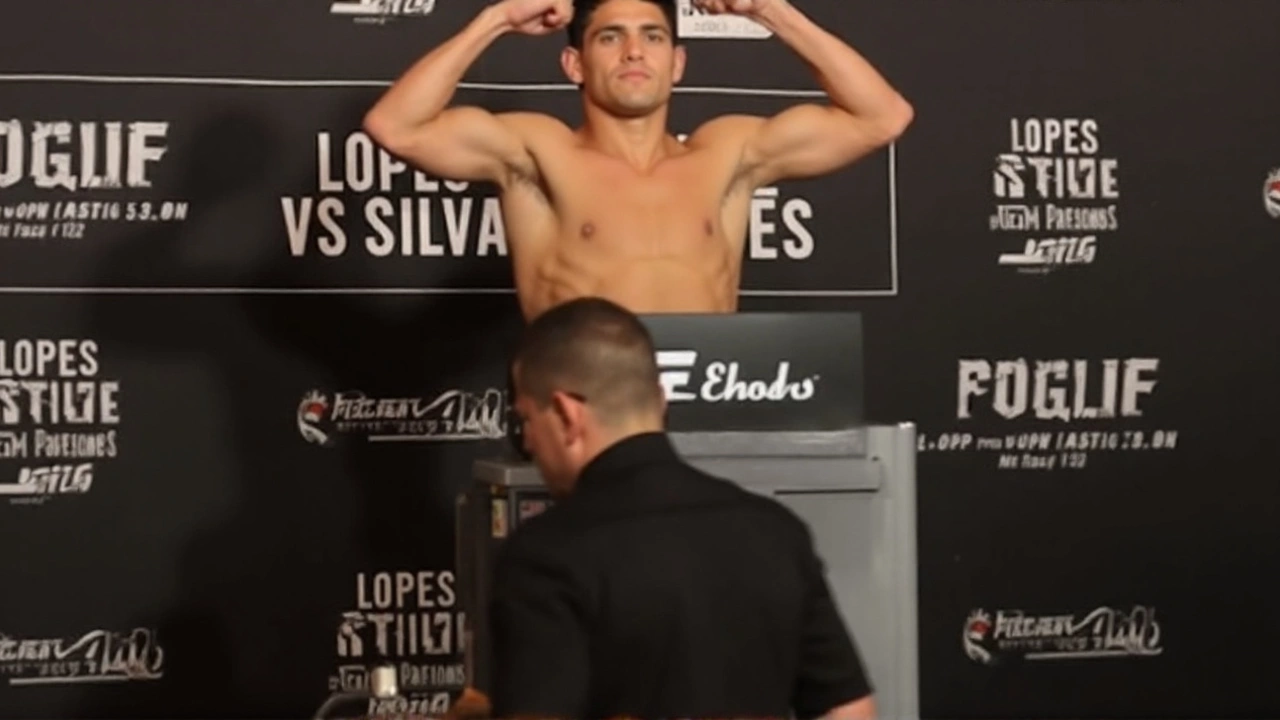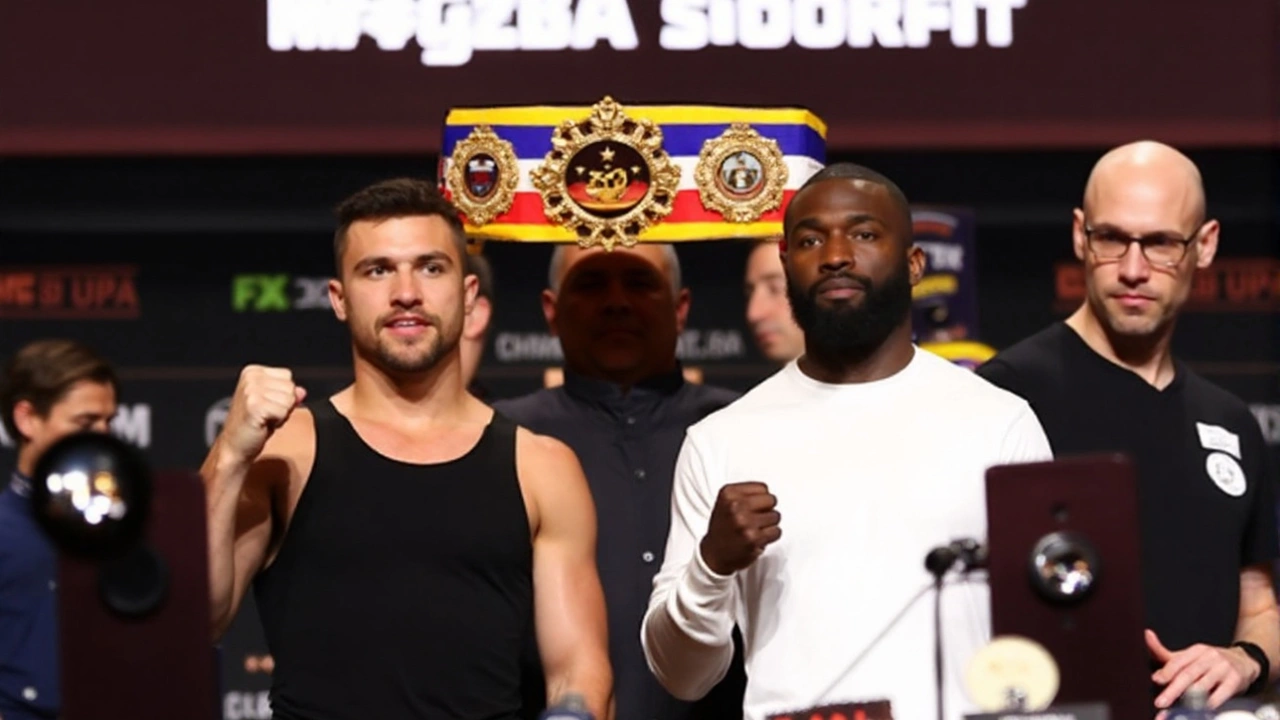After a five-pound miss, Kelvin Gastelum still finds a way to win
Kelvin Gastelum walked into UFC Noche with a cloud over his head and walked out with a unanimous decision win. The former interim title challenger missed the contracted mark by five pounds after accepting the booking on four weeks’ notice, a miss big enough to stir up the usual storm about fairness and safety. The fight went ahead at catchweight, and the judges scored it 30-27, 29-28, 29-28 for Gastelum over Dustin Fus.
That mix of controversy and composure framed the night. Gastelum owned the mistake as soon as the microphones came on, calling the result “bittersweet” and apologizing to Fus and his team. He thanked his camp at Fight Ready, name-checked his manager Ali Hunter, and gave credit to his family and faith, saying he wouldn’t be in the cage without them. It was the kind of post-fight tone that admits damage while trying to move forward.
The stakes were simple: both men came in off losses, both needed something steady to grab onto in a crowded middleweight picture. A short-notice fight cut the runway down, and the scale made it messier. Typically, a miss of this size comes with a fine to the offender’s purse and a commission-approved catchweight; those details weren’t immediately disclosed on fight night, but the setup made clear Fus would be facing a heavier opponent after rehydration.

How the fight played out and what it means next
Inside the cage, Gastelum stuck to fundamentals. He worked behind a busy jab, mixed in quick left hands, and used level changes to keep Fus honest. When exchanges heated up, Gastelum’s footwork—small pivots off the center line—helped him land the cleaner shots. Fus punched in combination and looked to extend rallies, but Gastelum’s counters and short resets stole momentum in the tighter moments.
In the clinch, Gastelum pressed along the fence, chipped away with short shots, and forced resets on his own terms. A couple of takedown looks didn’t produce long stretches of control, yet they served their purpose: they slowed Fus and widened the range of threats Fus had to respect. The second round was the closest—Fus found success when he fired first and finished exchanges with kicks—but Gastelum’s late-round accuracy likely swung at least one judge his way.
By the third, Gastelum’s pace held. He didn’t chase a finish; he managed risk. He cut angles after combinations, checked counters, and took the safe clinch when Fus tried to open up. The final horn brought a nod from both corners, a quick glance at the scorecards, and then those numbers: one sweep and two 29-28s.
What lingered was the weight miss. Gastelum has dealt with scale drama at various points in his career, especially during his welterweight runs, and the optics were hard to ignore. Five pounds is not a rounding error. Extra mass turns into extra pop, especially after rehydration. It also changes tactics—harder to move in the clinch, more thud on the body shots, more stubborn hips when defending takedowns.
That said, short-notice fights are a double-edged choice. Taking them keeps a career moving and pays the bills, but the compressed window raises the risk of a bad cut or a miss. Athletic commissions and promotions typically respond with fines, points of negotiation over catchweights, and medical checks. Some corners of the sport have tried different answers—more weight classes, same-day weigh-ins, hydration testing—but the UFC and state commissions still work with the standard 24-hour rehydration model.
From a competitive angle, the result steadies Gastelum’s footing. He’s been in the cage with elite names, from a classic war in his interim title bid to a long list of ranked contenders. The question has never been whether his skills match the division; it’s whether the version that shows up on fight night is the one fans expect. Saturday’s performance—measured, disciplined, prepared despite the short clock—nudges that narrative in the right direction.
For Fus, the loss stings because he had windows. When he forced longer combinations and stepped out on angles after kicking, he found daylight. But surviving early pressure from a heavier opponent and keeping it competitive across three rounds offers tape worth studying. Clean up the defensive exits, increase feints to draw those counters, and the next outing can look different.
The public reaction was exactly what you’d expect: part praise for Gastelum’s composure, part criticism for the miss. That tension isn’t going anywhere. Fighters push their bodies to razor-thin margins, and when the math doesn’t work, the opponent carries the risk. It’s why weight misses—especially big ones—always crank up the volume around fairness and what should happen next.
Zooming out, the timing helps Gastelum. A clear win after recent inconsistency gives matchmakers options—think durable, form-checking opponents who can test his pace over three rounds. He doesn’t need a fast-track climb; he needs reps and clean weeks. If he strings together professional weeks—on time, on weight, on plan—his name value will do the rest.
He said it himself: this one felt bittersweet. The scorecards don’t erase the miss, and the miss doesn’t erase the win. Both can be true. What matters now is whether the next camp gives him a full runway, a smooth week, and a chance to keep Saturday’s version rolling without the static at the scale.

Written by Maxwell Kingsdale
View all posts by: Maxwell Kingsdale